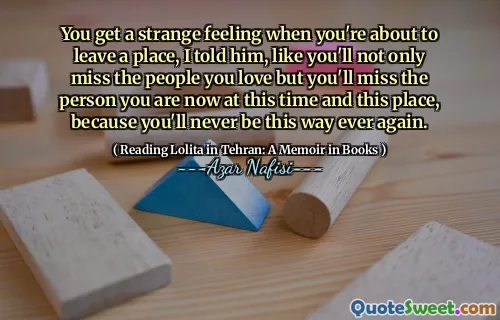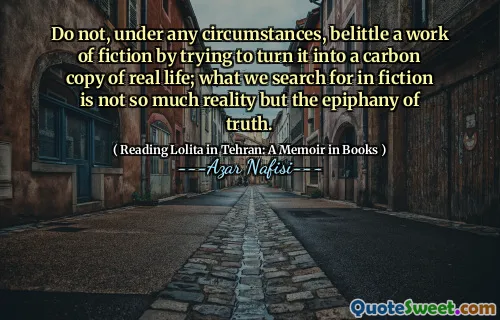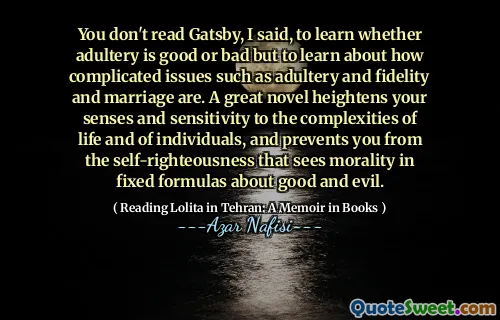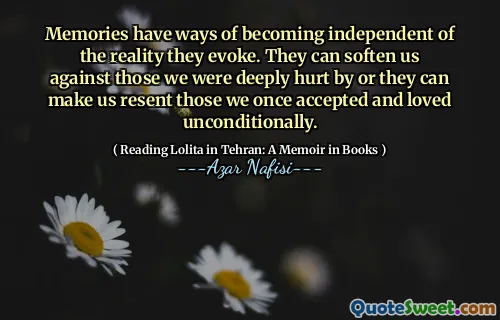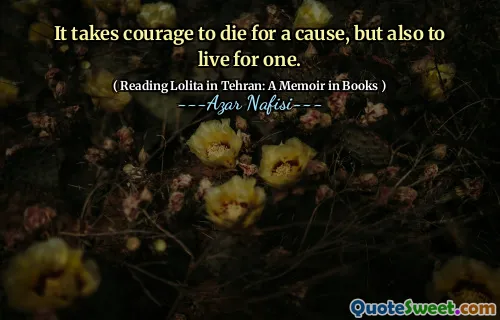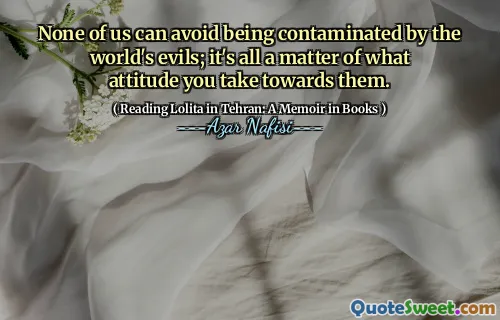
That day I had a poignant feeling, like an early mourning. What I had most dear had been crushed like a field of field flowers, razed to the ground to make room for a well -kept garden. Not even when I studied in the United States I had ever tried anything like that. In all those years I had kept me firmly clinging to the certainty that my home, my country appeared to me, and I could go back every time I wanted. And it was only when I finally returned that I understand the true meaning of exile. Walking for those roads I loved and remembered with so much affection, it was as myself trampling my memories.
📖 Azar Nafisi
In this passage, the author reflects on a deep sense of loss upon returning to her home country. She feels the destruction of what she cherished, likening it to beautiful flowers destroyed to create a manicured garden, signifying change that erases the past. This poignant feeling highlights her sorrow and highlights the stark contrast between her memories and the current reality.
Nafisi reveals that despite spending years in the United States, she clung to the notion of being able to return to her homeland. However, upon returning, she realized the true meaning of exile—her beloved home was no longer the same, and her memories felt trampled underfoot. This illustrates the profound impact of displacement and the emotional turmoil of reconciling the past with the present.
